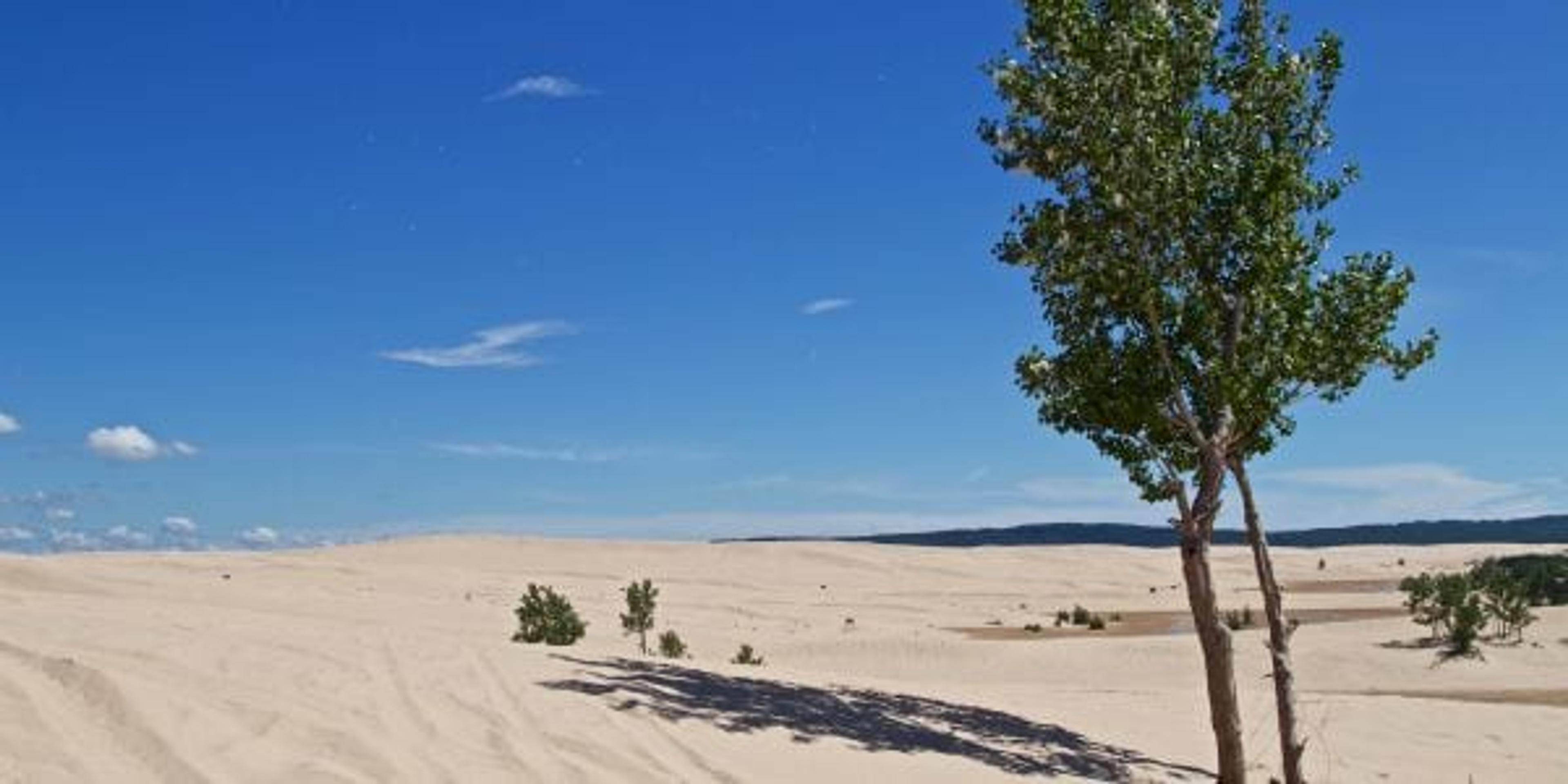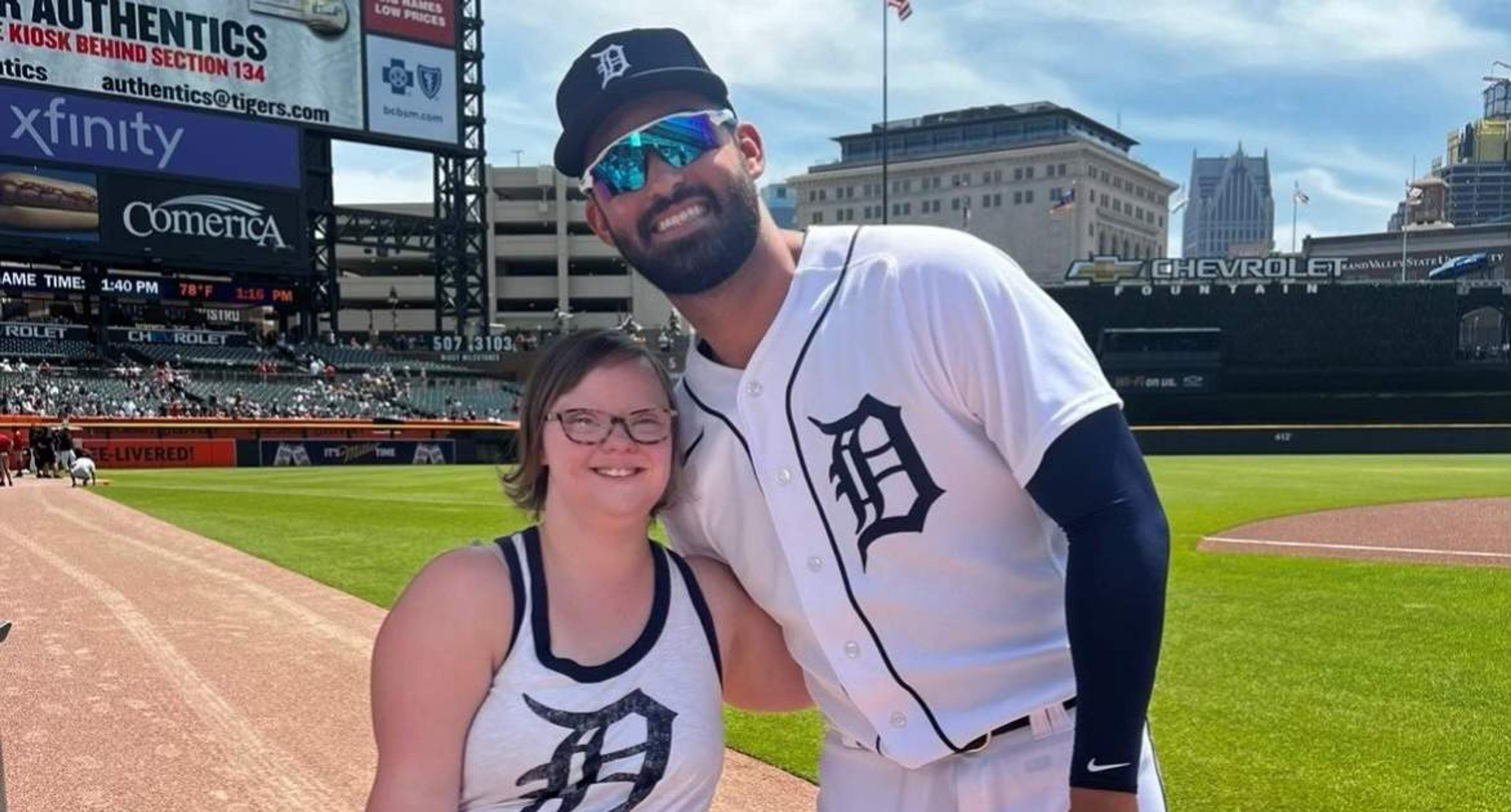Accessibility at Michigan State Parks

Jillian Berndtson
| 4 min read

In Michigan, you’re always within a half hour of a state park, trail or campground.
Fortunately, the state of Michigan and the Department of Natural Resources have teamed up to make state parks and recreation more accessible for people with disabilities.
With recent projects such as the accessible kayak launch at Interlochen State Park, it’s easy to see how the state of Michigan and the DNR are working together to provide the best memories for all families while also protecting Michigan’s natural beauty.
“It’s always a tricky balance of preserving our natural resources and providing accessible options … some of those can be as simple as providing signage at the beginning of a nature trail telling what someone might encounter on that trail. It could be a change in elevation, whether or not it’s bumpy or rocky, what the material is like, how long the trail is so it can vary from Mobi-Mats (lightweight matting that can be placed over sand, grass, or other unstable surfaces making it accessible to wheelchairs, strollers and pedestrians with mobility issues) actually being able to carry someone down to that location to more of information on what they may encounter,” said Eric Jazdzyk, development planner at Michigan DNR, Parks and Recreation Division.
The DNR and state of Michigan have made it their mission to increase accessibility across the state. That also means accessibility must be at the forefront of their project planning.
“Accessibility is a key component to really everything we do as far as construction goes,” said Jazdzyk. “If we’re disturbing the earth anyways, we will quite often add accessible elements as a part of that project. For example, if we’re tearing up a campsite to put in a new pedestal, at that same time, we might make that campsite an accessible campsite. Pretty much for all of our infrastructure projects have some component of accessibility and it’s usually replacing old infrastructure that was not previously accessible.”
Maia Turek, resource development specialist at DNR Parks and Recreation agreed, adding, “I think a lot of times now we think of accessibility not in terms of “and oh by the way, add a ramp” after the fact. It’s not about that, it’s about really designing and expecting that from any project. We’re really focused on designing for accessibility.”
Their efforts also affect the activities and recreation at each park. “In addition to the infrastructure changes we also have amenities that we add, for example Mobi-Mats and things that will allow people with mobility challenges to be able to access a beach more easily… In some of our parks we actually have wheelchairs that can be checked out, there’s no charge for them, but…they have the tires that float over the sand a lot better,” Turek said.
It’s important to the DNR to go beyond the minimum to integrate accessibility options so all families can enjoy making memories together at Michigan State Parks. “A lot of what we’ve talked about is working to preserve that visitor experience so that way it’s not just making sure that there’s something available, it’s making sure that a family can have a more seamless experience recreating,” Turek said. “If you have a Mobi-Mat or a beach chair, that means the entire family can get out and experience that beach together and that changes the memories that that family gets to make while they’re out enjoying Michigan’s natural resources. That’s a core part of being a family-making memories together.”
The families of individuals with disabilities are always grateful for the opportunity to have everyone enjoy Michigan’s outdoors. “We’ve heard anecdotal stories that have been shared so for me, that’s what made it top of mind was hearing the stories from families who benefited from what was made available to them … it’s stories like ‘I can’t believe I can go and enjoy the beach with my mom who’s had two hips replaced and is in a walker’ or ‘I’m able to enjoy the experience with my son who’s quadriplegic and they actually get to play in the water with their sister for the first time ever,’” added Turek.
If your community is in need of more accessible options, the DNR is always looking to help. “We want to make sure that if there’s a need, we’re working to fill it,” said Turek. “I wouldn’t be afraid to reach out to your park manager and just ask them what we can do to work together and make it a reality for the community.”
Where will you go on your next Michigan vacation?
You may also like:
Photo credit: A Healthier Michigan





